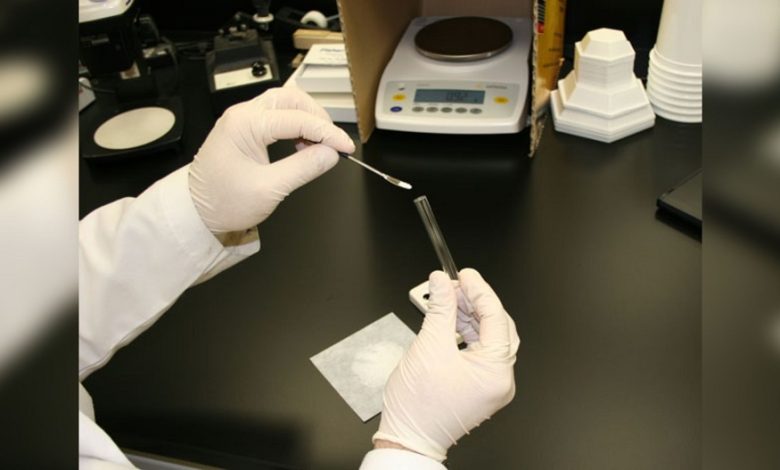
The Houston Forensic Science Center is an institution that is widely known in the state of Texas for its talented and diligent analysts. Their labs are filled with boxes brimming with drugs seized from various crime scenes, each waiting to be analyzed by experts in their field. The analysts work tirelessly around the clock, moving quickly from vials to microscopes to computers to uncover the secrets behind each of the unidentified items placed before them.
Across the state, prosecutors from Houston and nearby counties eagerly await test results from the Houston Forensic Science Center, as these results are necessary to prosecute criminal defendants. For drug-related crimes, every Texas court case that follows an arrest and drug seizure must begin with a round of lab tests.
Recent events in March have caused quite a stir in the world of crime labs. An analyst was assessing a tray of six tiny pink pills that appeared to be a 20-milligram dose of the prescription painkiller OxyContin. Something seemed off about the color of the pills, and upon checking the lab results, their suspicion was confirmed. “This one is fentanyl,” said the analyst, who preferred to remain anonymous. The vivid color of the pill appeared suspicious to James Miller, the manager of the Seized Drugs Division at the Houston Forensic Science Center, who admits that detecting counterfeits is becoming increasingly difficult. Illegal drug manufacturers have improved the appearance of opioids, making it harder for those tasked with detecting them.
Of the 50 crime labs in Texas, only 30 are accredited to handle drug evidence, and their workloads never seem to ease up. State drug laws change regularly, and lawmakers have been focusing their attention on passing new drug laws to crack down on illegal fentanyl distribution and stop the rise in overdose deaths, according to Dallas Metro News. Fentanyl is a synthetic opioid that is up to 50 times stronger than heroin and 100 times stronger than morphine. Prescription fentanyl can be taken safely when prescribed by doctors, but its illicit use has skyrocketed since the COVID-19 pandemic.
Crime lab officials, who have some of the smallest staffs in all of law enforcement, have repeatedly asked lawmakers and budget officials to speak with them before passing new drug laws. They are concerned that the added pressure of prosecuting fentanyl cases will cause longer wait times for evidence results, leading to frustration from law enforcement agencies. Crime lab officials have warned that the state’s legalization of hemp in 2019 would create issues, and now scientists are being forced to make difficult decisions with their limited resources.
Lawmakers have proposed various bills related to fentanyl, including Senate Bill 645, authored by State Sen. Joan Huffman, R-Houston, which would allow prosecutors to file a murder charge against individuals arrested for producing or selling illegally made fentanyl. Those convicted could face at least 10 years in prison, depending on the amount. State Rep. Andrew Murr, R-Junction, has authored House Bill 178, which would require all public and private crime laboratories that conduct forensic analysis to test all seized controlled substances for the presence of fentanyl if there is suspicion it might contain the synthetic opioid. However, the Houston crime lab has limited resources and has expressed that they do not have the resources to test all 20,000 pills in a box that are seized.





Leave a Reply